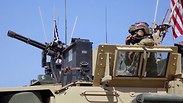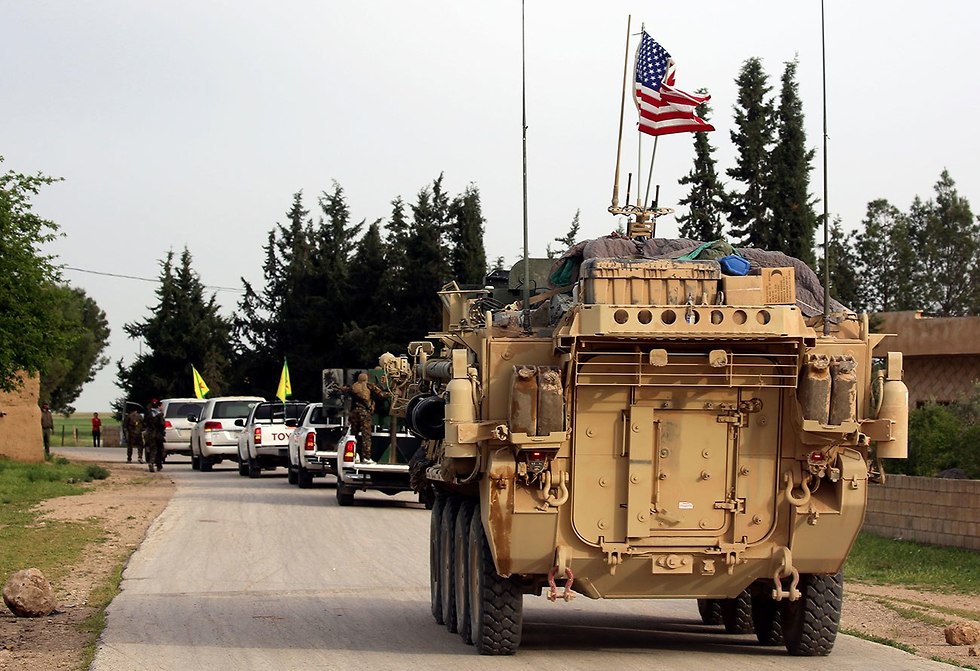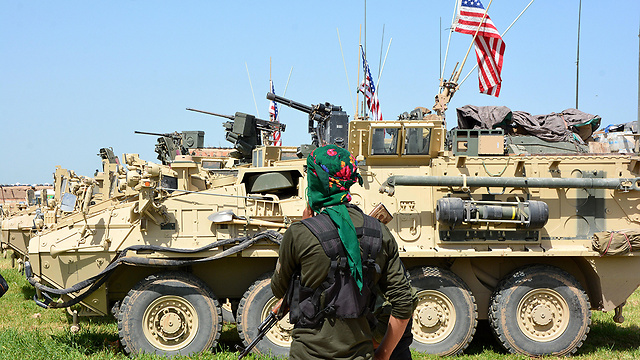

Who benefits as US withdraws from Syria? Not Israel
Analysis: Washington's decision is counterproductive: it gives Iran a second front in its war against the Jewish State and leaves IS active, whatever Trump says—it erodes US standing on the world stage and gives Putin even more power in the Mideast.
Islamic State is still present in Syria and Iraq, and yet US President Donald Trump is withdrawing his forces from Syria. He intended to do so long ago, but US Defense Secretary James Mattis deterred him. The stated reason for keeping American troops in Syria was their Kurdish allies, since if American consultants abandon the Kurds—the betrayal would decimate American standing and credibility. Such a move will also invalidate Israel's insistence that Syria, Iran and Turkey should not be given carte blanche to do as they wish in the strategically located country.
But Trump wanted out of Syria, mainly for economic reasons, and therefore he declared victory over IS. The White House was quick to state that the US departure does not signal that the Americans are leaving the coalition against IS, but rather, now that IS lost its strongholds, the White House is "transitioning to the next phase of the campaign."
It is not clear what it means to "transition." Will the US withdraw its military advisers from Syria and transfer them to Jordan? Or will it be satisfied fighting IS with its troops in Iraq? Will the Americans use their airpower from the Sixth Fleet in the Mediterranean instead of military bases in Syria? Whichever way this goes, this is not good news for Israel.
The White House's announcement means that the US is letting Russia and Iran, and to a certain extent Turkey, shape both their own interests and the new order that will form in Syria at the end of the civil war.
As a result, Iran will cement its foothold in Syria more easily and Putin's influence in the Middle East, including Iraq, will grow. The Syrian Kurds, who are losing the support of a protector and adviser, will have to seek shelter in Assad's arms while, once the US forces leave the area, Turkey is free to attack them at will.
Who will trust the US now?
The United States had about 2,000 military personnel in Syria. They were stationed there to assist the Syrian Democratic Forces, a prominent opposition group, to fight in rebel enclaves in the desert east of the Euphrates River.
Despite what Trump claims, IS has not yet been completely destroyed—the American troops and their Kurdish allies were successfully wiping them out. Until now.
The American presence in Syria, therefore, is still necessary, even though they are small in numbers. In fact, this force, together with its Kurdish allies, holds all territory to the east and north of the Euphrates River—about a quarter of the entire territory of Syria. When the American military advisers return home, the US will lose an important asset that would grant it influence over whatever surfaces in Syria after the civil war.
Another American military asset in Syria is a Special Forces base in Al-Tanf, near to the Syrian-Iraqi-Jordanian border triangle. From this military base, US air and intelligence forces operate against IS enclaves in the Deir ez-Zour area. But more importantly, these troops prevent Iran from transferring militias, missiles and other weapons through the land corridor from Iran through Iraq to Syria, and onto Hezbollah in Lebanon.
Therefore, the American departure from Syria does not bode well, both from an Israeli and a Jordanian perspective. It is this American presence that currently blocks the establishment of the Quds Force of the Iranian Revolutionary Guards and the Shiite militias it brought into Syria, near its borders with Jordan and Israel.
More importantly, this withdrawal erodes the status of the United States as a world power and as an influencer in the Middle East. The Russians want the American military advisers out so that Washington wouldn’t be able to demand a share of the spoils once the civil war is over.
Worse yet, the US will be perceived as abandoning the interests of its allies in the Middle East, not just Israel and Jordan, but also Saudi Arabia, which is considered the patron of the Sunni Muslims in Syria. In addition, by withdrawing its forces, Washington is losing a negotiating card in their dealing with Russia.
When Trump takes his soldiers from Syria, you can be sure Qasem Soleimani , the commander of Iran's Quds Force, will be cheerfully rubbing his hands together and gleefully informing Iran's Supreme Leader Ayatollah Ali Khamenei that another obstacle has been removed from their path in Syria, and a second front against Israel is now ripe for opening.

















